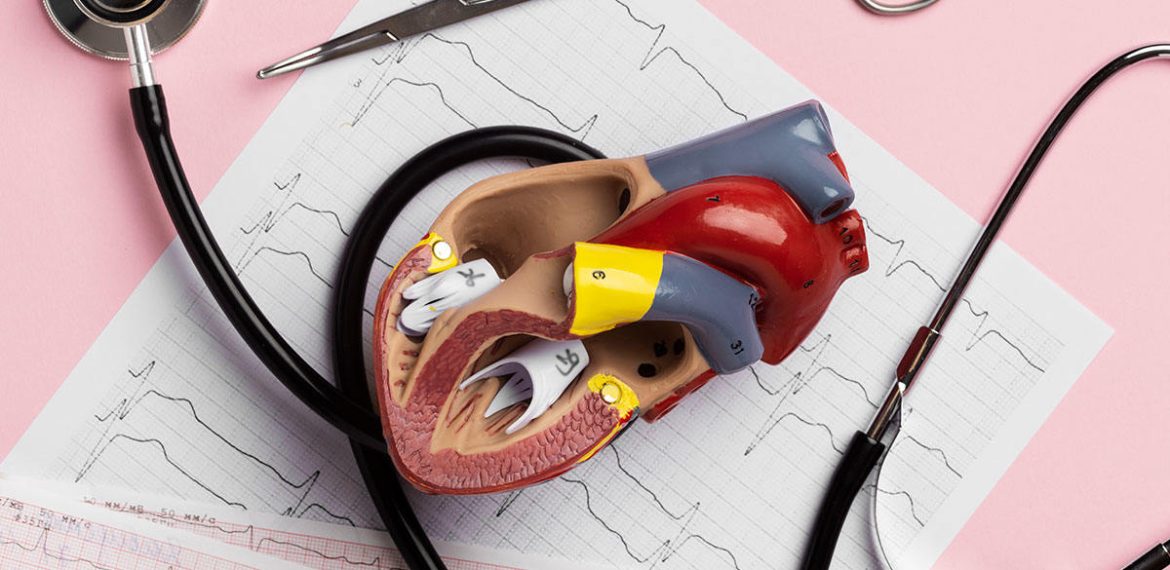Heart valves play a crucial role in maintaining the normal functioning of the cardiovascular system. These delicate structures act as gatekeepers, regulating blood flow within the heart chambers and ensuring that oxygen-rich blood is efficiently distributed throughout the body. However, when a heart valve fails to function properly, it can lead to a cascade of physiological consequences that significantly impact an individual’s health and well-being.
Anatomy And Function of Heart Valves
Before delving into the consequences of valve failure, it’s essential to understand the anatomy and function of the heart valves. The human heart consists of four chambers: two atria and two ventricles. Each chamber is equipped with a valve that prevents the backflow of blood and facilitates the unidirectional flow of blood through the heart.
The four main heart valves are the:
Tricuspid Valve: Located between the right atrium and right ventricle.
Pulmonary Valve: Situated between the right ventricle and the pulmonary artery.
Mitral Valve: Found between the left atrium and left ventricle.
Aortic Valve: Positioned between the left ventricle and the aorta.
These valves open and close in a coordinated manner, allowing blood to move from one chamber to another during each cardiac cycle. The rhythmic opening and closing of the valves create the characteristic lub-dub sound of a healthy heartbeat.
SEE ALSO: 7 Ways to Treat Hypokalemia in Heart Failure
Causes of Heart Valve Failure
Heart valve failure can occur due to various factors, including:
Degenerative Changes: As people age, the heart valves may undergo degenerative changes, leading to thickening, stiffening, or calcification. This can impair the valve’s ability to open and close properly.
Congenital Defects: Some individuals are born with structural abnormalities in their heart valves, such as narrow openings (stenosis), improper sealing (regurgitation), or fused valve leaflets (bicuspid valve). These congenital defects can predispose them to valve dysfunction later in life.
Infective Endocarditis: This is a bacterial or fungal infection of the heart valves or the inner lining of the heart chambers.
Infection can cause valve damage, leading to incompetence or stenosis.
Rheumatic Heart Disease: Historically more common in regions with a high prevalence of rheumatic fever, this condition can result in scarring and deformity of the heart valves, affecting their functionality.
Other Medical Conditions: Certain medical conditions, such as hypertension, atherosclerosis, and autoimmune disorders, can also contribute to heart valve deterioration over time.
Consequences of Heart Valve Failure
When a heart valve fails to function properly, several consequences can arise:
Valvular Stenosis: This refers to the narrowing of a heart valve opening, which obstructs blood flow. Stenosis increases the workload on the heart chambers upstream of the affected valve, leading to hypertrophy (enlargement) and potential dysfunction of these chambers.
Valvular Regurgitation: Also known as insufficiency or incompetence, this occurs when a valve fails to close completely, allowing blood to leak backward (regurgitate) into the previous chamber. Regurgitation can cause volume overload, leading to chamber dilation and eventual heart failure if left untreated.
Hemodynamic Changes: Valve dysfunction alters the hemodynamics of blood flow within the heart and the systemic circulation. This can result in increased pressure in certain chambers, abnormal blood flow patterns, and compromised cardiac output.
Symptoms: Patients with heart valve failure may experience a range of symptoms depending on the severity and type of valve dysfunction. Common symptoms include shortness of breath, chest pain or discomfort, palpitations, fatigue, dizziness, and fluid retention (edema).
Complications: If left untreated, heart valve failure can lead to serious complications such as atrial fibrillation (an irregular heart rhythm), pulmonary hypertension (elevated pressure in the lung arteries), heart failure, and an increased risk of infective endocarditis.
Diagnostic Evaluation
Diagnosing heart valve failure typically involves a combination of clinical assessment, imaging studies, and specialized tests. Healthcare providers may use techniques such as echocardiography (including transthoracic and transesophageal echocardiograms), cardiac MRI, CT angiography, and cardiac catheterization to evaluate valve structure and function, assess hemodynamics, and determine the most appropriate treatment approach.
Treatment Options
The management of heart valve failure depends on several factors, including the specific valve involved, the severity of dysfunction, the presence of symptoms, and the patient’s overall health status.
Treatment options may include:
Medications: Certain medications, such as diuretics, beta-blockers, ACE inhibitors, and anticoagulants, can help manage symptoms, improve heart function, and reduce the risk of complications.
Valve Repair: In some cases, surgical or minimally invasive techniques may be used to repair a damaged or dysfunctional heart valve. This approach aims to preserve the natural valve structure and function whenever possible.
Valve Replacement: When valve repair is not feasible, valve replacement surgery may be necessary. This can involve the use of mechanical valves (made of durable materials) or bioprosthetic valves (derived from animal tissue) to replace the malfunctioning valve.
Transcatheter Interventions: Transcatheter techniques, such as transcatheter aortic valve replacement (TAVR) and transcatheter mitral valve repair (TMVR), offer less invasive alternatives to traditional open-heart surgery for select patients.
Lifestyle Modifications: Adopting a heart-healthy lifestyle that includes regular exercise, a balanced diet, smoking cessation, and stress management can complement medical and surgical interventions in managing heart valve failure.
Prognosis And Follow-Up
The prognosis for individuals with heart valve failure varies depending on factors such as the underlying cause, the extent of valve dysfunction, the timeliness of intervention, and the patient’s response to treatment. With advancements in medical and surgical therapies, many patients can achieve significant improvements in symptoms and quality of life.
Regular follow-up appointments with healthcare providers are crucial for monitoring valve function, assessing treatment efficacy, addressing any new symptoms or complications, and providing ongoing support and education to patients and their families.
Conclusion
In conclusion, heart valve failure can have profound implications for cardiovascular health and function. Understanding the causes, consequences, and treatment options for valve dysfunction is essential for healthcare providers, patients, and caregivers alike. Through timely diagnosis, personalized treatment strategies, and comprehensive care, individuals with heart valve failure can optimize their outcomes and enjoy a better quality of life.

